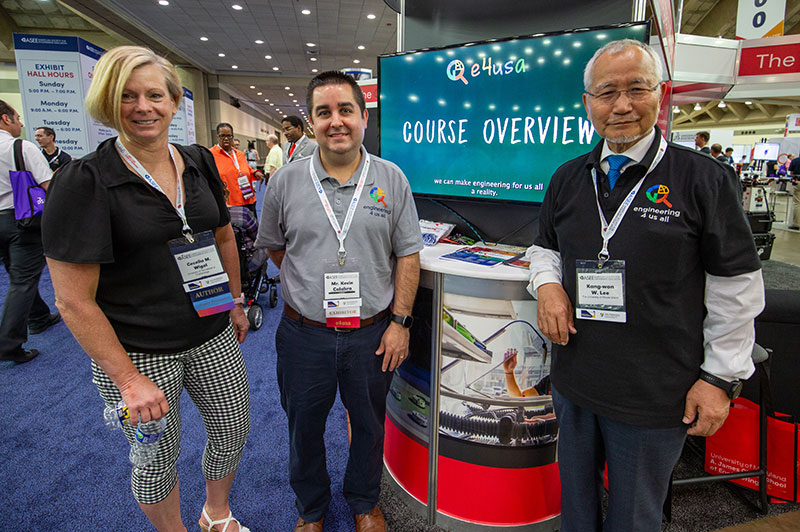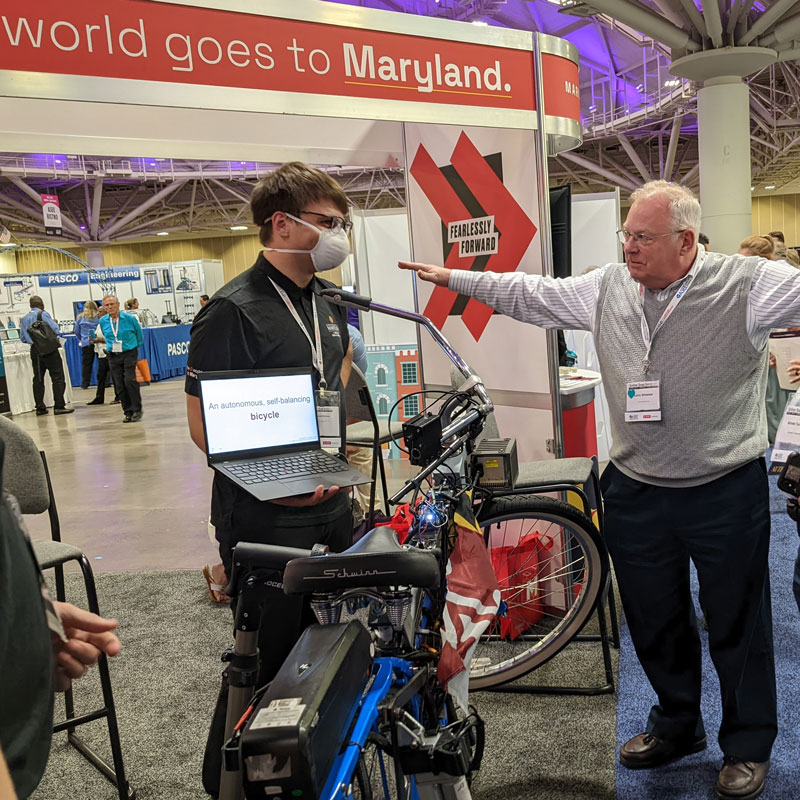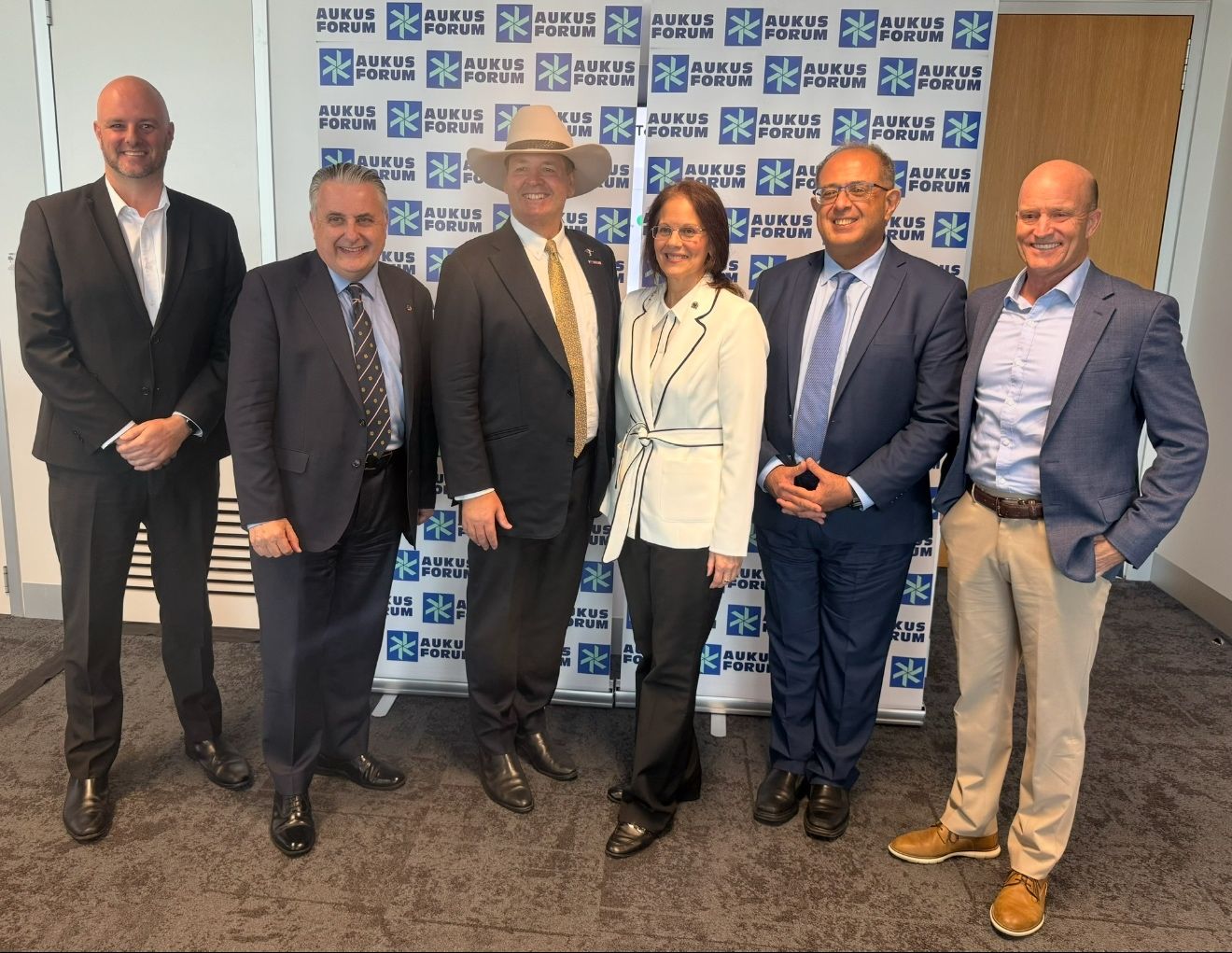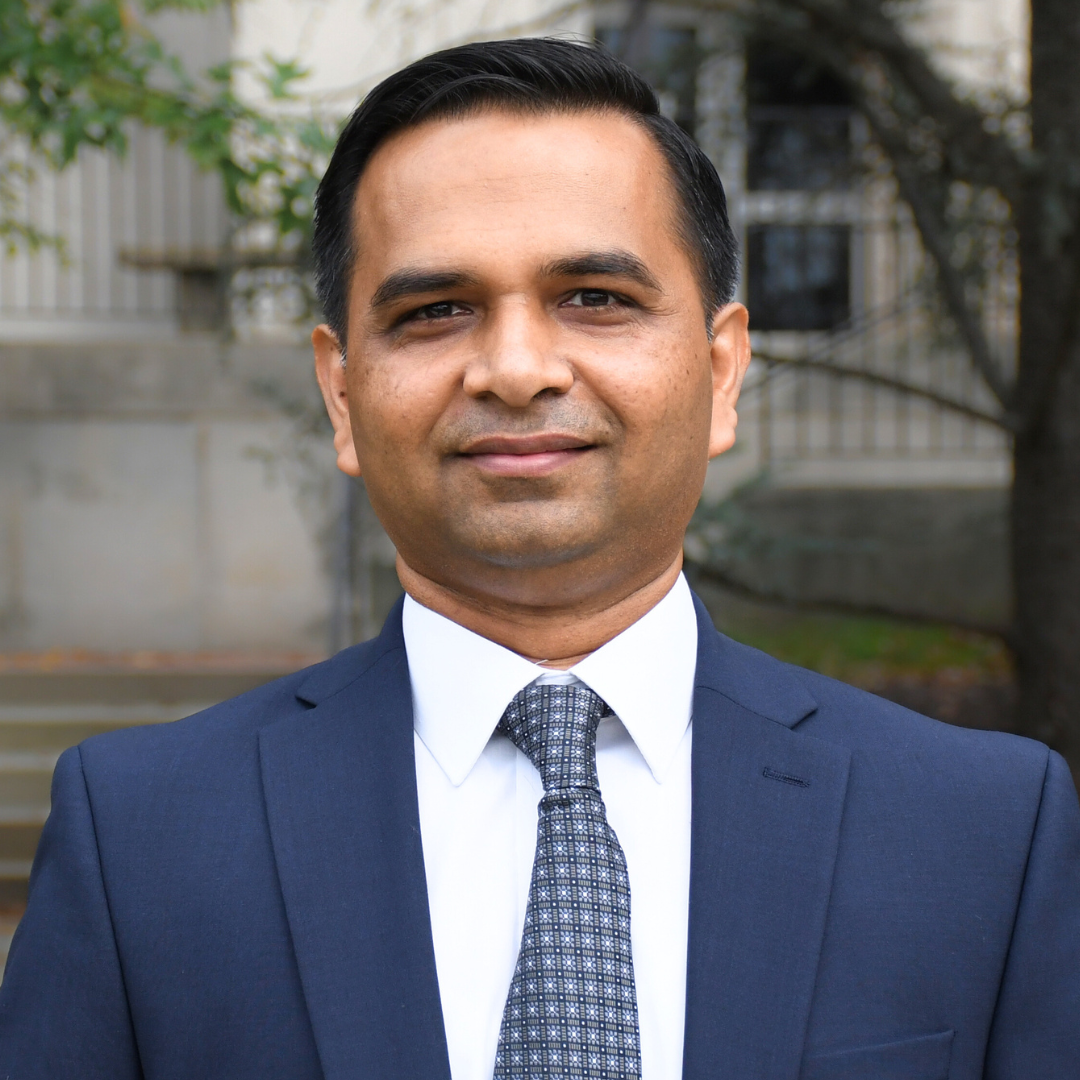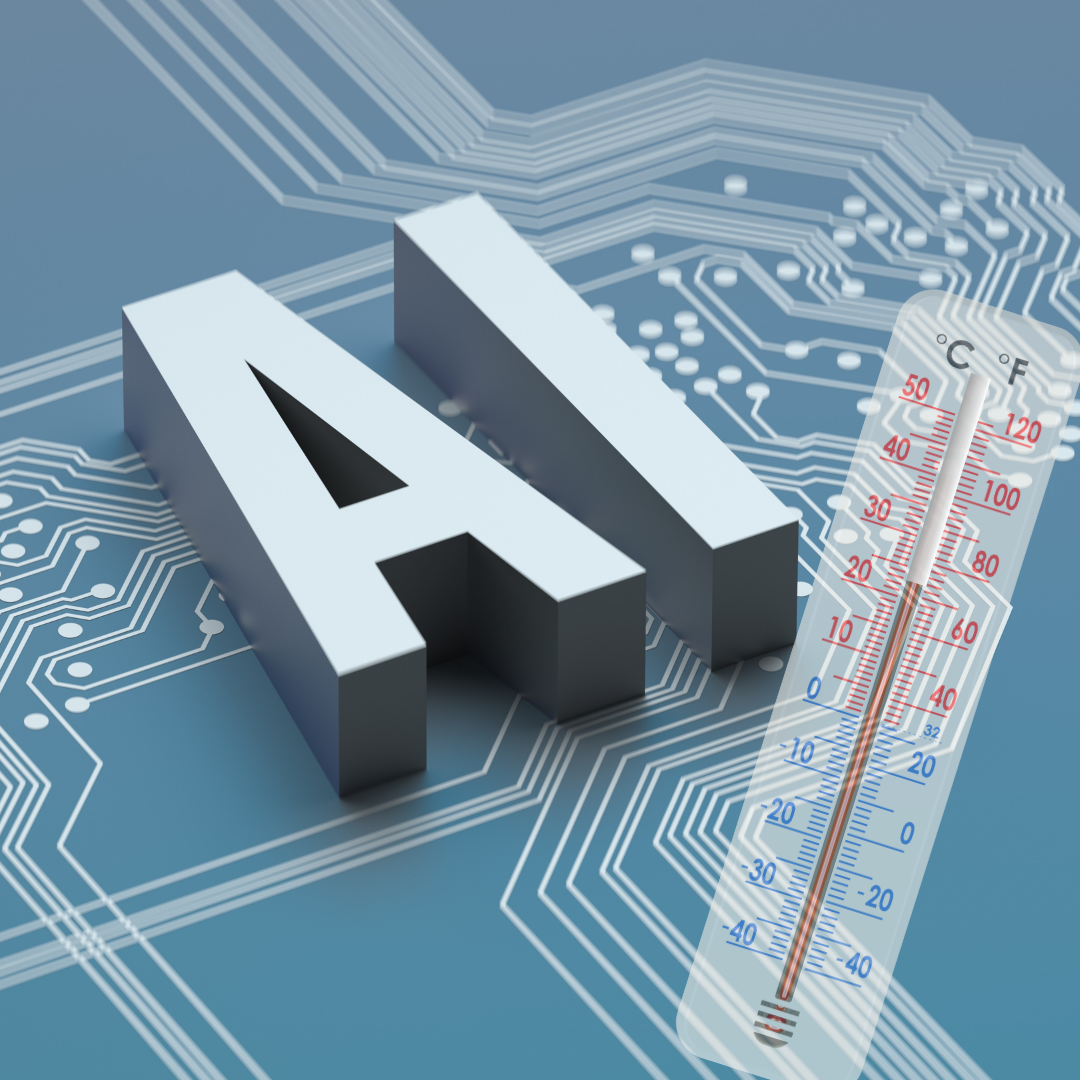News Story
Maryland Engineering to Highlight Educational Advances at the 2024 ASEE Annual Conference
The University of Maryland’s A. James Clark School of Engineering serves as a catalyst for high-quality research, innovation, and education, delivering on a promise that all graduates will leave ready to impact the grand challenges of the 21st century. Pioneering educational programs open doors of access to students from all backgrounds, improve engineering teaching and learning, and propel engineering research forward to provide students with powerful insights into the innovations needed to engineer solutions to society’s most pressing problems.
Through early, hands-on, team-based design experiences and introductions to the latest engineering technologies and tools, including artificial intelligence (AI) and machine learning (ML), students get the foundational skills they need to optimize their learning throughout their undergraduate years. Working alongside faculty and with industry experts, students deepen their understanding of the demands of the modern engineering field and become career-ready. Engaging in long-term, real-world design projects, students contribute to research exploration and discovery with the potential to benefit, in meaningful ways, the campus, state, and world.
Visit Maryland Engineering at ASEE 2024
Translating Strengths in Quantum
One of the first minors of its kind in the U.S., the new minor in quantum science and engineering (QSE) is an interdisciplinary program launching in Fall 2024. A joint offering between the Clark School and the College of Computer, Mathematical, and Natural Sciences (CMNS), the minor will structure and streamline the university’s long-standing strengths in quantum. Students in the minor will develop fundamentals in math and physics needed for studying quantum systems. They will also be introduced to different aspects of quantum, such as quantum computing technologies, algorithms for quantum computers, characteristics of quantum materials, and sensing and noise in quantum systems. Besides theory courses, students will be given hands-on laboratory experience.
Two dedicated labs will be a highlight of this new minor: in the hardware lab, students will build quantum hardware and conduct hands-on quantum experiments; in the software lab, students will program quantum computers.
“Quantum technology is in its infancy, but we need to educate our students to be ready for quantum-based technology, communications, and security,” said Sennur Ulukus, who led the development of the minor. Ulukus is the Anthony Ephremides Professor in Information Sciences and Systems in the Department of Electrical and Computer Engineering and holds a joint appointment with the Institute for Systems Research. “We want to be leading in this education so, as a country, we can be leading the world in quantum engineering.”
The minor in QSE builds on the university’s $300 million investment in quantum science and more than 30-year track record of driving advances in quantum physics and technology to address some of the greatest challenges of our time. The Quantum Technology Center (QTC) is just one of six quantum centers on UMD’s campus. Opened in 2019, the QTC brings together more than 200 quantum researchers at UMD, among the highest concentrations in the world. With a goal of turning innovative quantum research into transformative technologies, the center is an ever-evolving research-and-development center for advancement in the state of Maryland.
“We are so strong on this campus in quantum,” said Ulukus. “We are the right people to translate our research strengths to teaching undergraduates to do quantum research and to practice quantum in the world.”
Pioneering Artificial Intelligence Education
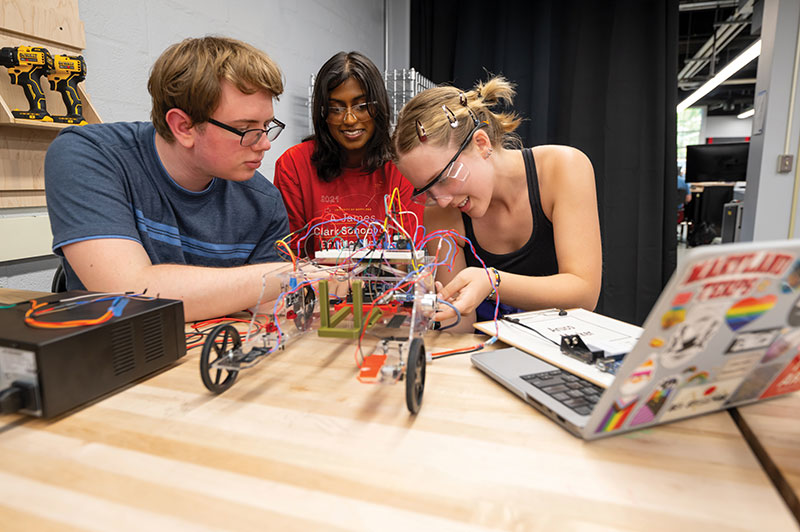
In April 2024, the University of Maryland (UMD) launched the new Artificial Intelligence Interdisciplinary Institute at Maryland (AIM) dedicated to developing the next generation of artificial intelligence (AI) education, technology, and leaders. UMD President Darryll J. Pines called it “a pioneering step in AI research and education—we’re not just adapting to the AI age, but shaping its future.”
Building on the university’s existing AI expertise, research, and centers, AIM will coordinate new educational advancements, including the Clark School’s AI4All initiative, intended to prepare all engineering students to leverage and use existing AI and ML tools and capabilities to solve engineering problems in both their academic and professional careers.
At present, AI4All is focused primarily on undergraduate AI and ML education, and particularly on adding content to foundational engineering courses—including the first-year experiential Keystone Program course, ENES100: Introduction to Engineering Design, taken by all undergraduate engineering majors. Three semesters ago, instructors piloted the addition of ML to ENES100; today, more than 1,000 students get a high-level overview of ML as part of the introductory design course.
e4usa in Action
In May, 19 juniors and seniors at College Park Academy (CPA), a public charter high school launched with support from the University of Maryland in 2013, gave 10-year-old Stella Stakolosa a birthday gift unlike any other, a lacrosse stick they’d designed just for her: hot pink, bendable and wheelchair-mounted. Stella, who has cerebral palsy, was thrilled with the adaptive device. The student designers are part of the Engineering for Us All (e4usa) program, which was funded by generous grants from the National Science Foundation and co-created by University of Maryland President Darryll J. Pines. The e4usa initiative, which aims to expand access for high school students to learn engineering principles, skills, and practices, is active in schools across 25 states and territories, including CPA. Each year, students in the course design a new adaptive device, benefitting those who receive them and the students who spend a semester working on the project. Read the story.
In the initiative spearheaded largely by undergraduate teaching fellows, students are utilizing ML by incorporating image-recognition models into their autonomous over-terrain-vehicle projects, explained Joshua Cocker ’19, M.S. ’21, who is a lecturer in the Keystone Program. “The goal of introducing first-year students to machine learning is to demystify this technology and show them it’s something they are capable of harnessing throughout their engineering coursework, regardless of their engineering discipline,” he said. “The greater vision of this initiative is that students will continue to use ML as a tool in their arsenal, employing it in their capstone design projects and beyond.”
From keystone to capstone, engineering students find AI and ML increasingly emphasized across disciplines and departments, greatly enhancing the experiential learning process. One example of a capstone design project showcased at the Capstone Design Expo, May 1: “A Deep Learning Framework for Morphological Analysis of Electron Microscopy Images of the SARS-CoV-2 Virus” presented a coronavirus morphology analysis using AI that was designed by a team of biocomputational engineering seniors advised by faculty and sponsored by the Institute of Bioscience and Biotechnology and the University of Maryland School of Medicine. “Using a machine learning model we can do medical image analysis like that,” said team member Miguel Martinez, snapping his fingers for emphasis.
As part of the AI4All initiative, three new ML modules were offered in Spring 2024, including an undergraduate design optimization course for mechanical engineers, a senior capstone design course in the aeronautics track, and an advanced graduate course in autonomous aerial robotics, with more new modules planned for Fall 2024. Also launching in Fall 2024 is a hands-on, sophomore-level course, offered through CMNS and the Clark School, designed to introduce engineering students to AI’s potential (and potential pitfalls) in a user-friendly way. A similar course may eventually be offered campus-wide as part of the UMD General Education program.
A new high-performance computing cluster tailored for AI’s complex computational challenges, and doubling the campus’ computing power, will support UMD’s AI and ML initiative. A dedicated, 50-seat AI teaching lab is expected to be available for the fall semester.
Democratizing Engineering for All
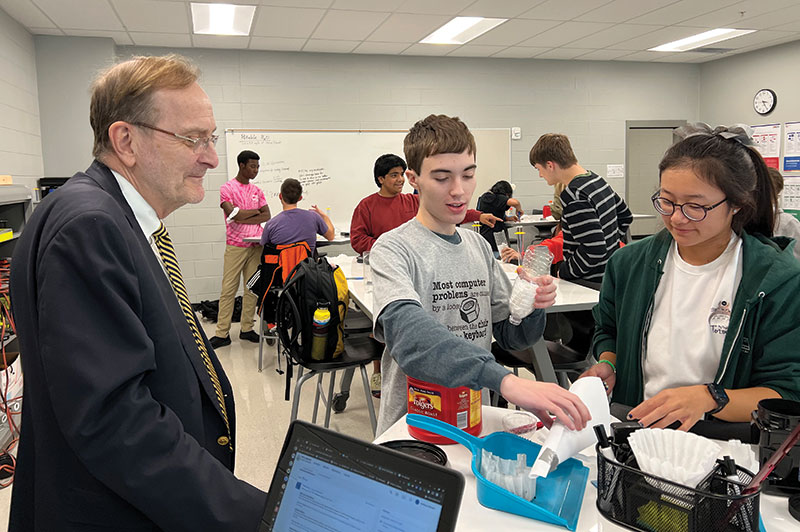
Engineering for US All (e4usa) is a high school engineering program opening engineering to a new generation of students and educators. A national initiative initially funded by the National Science Foundation (NSF), e4usa makes engineering curriculum accessible to pre-college students across the U.S., and especially for populations traditionally underrepresented in the field. High school students reached by e4usa explore engineering in society, develop professional skills, and engage in community-focused engineering design experiences, all aimed at helping them see themselves as engineers.
UMD President Pines was instrumental in launching e4usa in 2018 while serving as dean of Maryland Engineering. He and the American Society for Engineering Education (ASEE) completed an effort to sign on more than 120 deans to support the launch; NSF funding received in 2021 helped extend the program’s reach. Today, Samuel Graham Jr., dean of the Clark School, serves as Principal Investigator of e4usa’s Grant Core Team, as e4usa has transitioned from NSF sponsorship to a nonprofit organization. Forty-two university partners, including UMD, have joined in e4usa’s mission to democratize engineering for every high school student. In the last five years, e4usa has served more than 90 high schools and high school teachers with professional development, reaching more than 7,500 students. Among this year’s more than 1,900 students served by e4usa, more than 700 identified as women, and more than 1,000 identified as people of color.
“UMD took the lead in bringing partners to the table to work on an ambitious project that today is a viable nonprofit organization,” said e4usa Credit and Placement Team Lead Kevin Calabro, who’s also director of the Keystone Program at the Clark School: “The amazing story of e4usa is the number of different institutions and partners who were brought together to create the highest quality high school engineering curriculum and professional development training program available, all with the shared goal of attracting more high school students from all backgrounds into engineering.”
Reimagining Higher Education Research

UMD is excited to be piloting the Vertically Integrated Projects (VIP) Model for Experiential Learning and expanding for-credit undergraduate research and opportunities. The VIP model creates long-term, large-scale projects that unite undergraduate education and faculty research, innovation, design, and entrepreneurship through multidisciplinary, vertically integrated teams of undergraduate students, graduate students, and faculty members. VIP is an award-winning educational construct that was developed at Georgia Tech and Purdue University and has been refined over the last 25 years. VIP programs are now active in more than 40 universities with more than 4,500 students participating per term around the globe. The VIP Consortium is a nonprofit alliance established to support and promote the success of VIPs in colleges and universities worldwide.
VIP creates long-term student experiences with the innovation process, providing for deeper insights and substantial contributions to real-world projects, while expanding the scholarship and exploration of faculty mentors. By taking advantage of cross-disciplinary teams of sophomores to seniors, working together, faculty and students mutually benefit.
Four current teams at UMD include: 3D-Printed Video Game-Playing Soft Robots, which is tasked with demonstrating the accessibility and efficacy of soft robots by demonstrating their ability to play video games; Hands-On At-Home Fluids Projects, which aims to develop a series of instructional kits that can be used at home to support college-level fluid dynamics courses; TerpTrails: A Bluetooth Navigation and Exploration App, which aims to create a location-based tool for students, faculty, and visitors to inform them of general information and events happening around campus in real time; and Engineering on the Edge of Space, focused on building, testing, and flying engineering experiments using high-altitude weather balloons.
Additional VIP teams are planned to launch in Spring 2025. Longer-term plans include expanding the program beyond Maryland Engineering. “We are very excited to be starting our own VIP implementation here at the University of Maryland,” said Ken Kiger, Associate Dean of Undergraduate Programs at UMD, who, along with the Office of Global Engineering Leadership, has led the VIP efforts. “It is a compelling model that has a demonstrated track record of making research more accessible for undergraduates at large scales, while also improving a sense of community and self-efficacy for students as they explore cutting-edge topics. We look forward to involving additional faculty and students in the coming year, so that more may take advantage of this high impact program,”he said.
Published June 4, 2024
